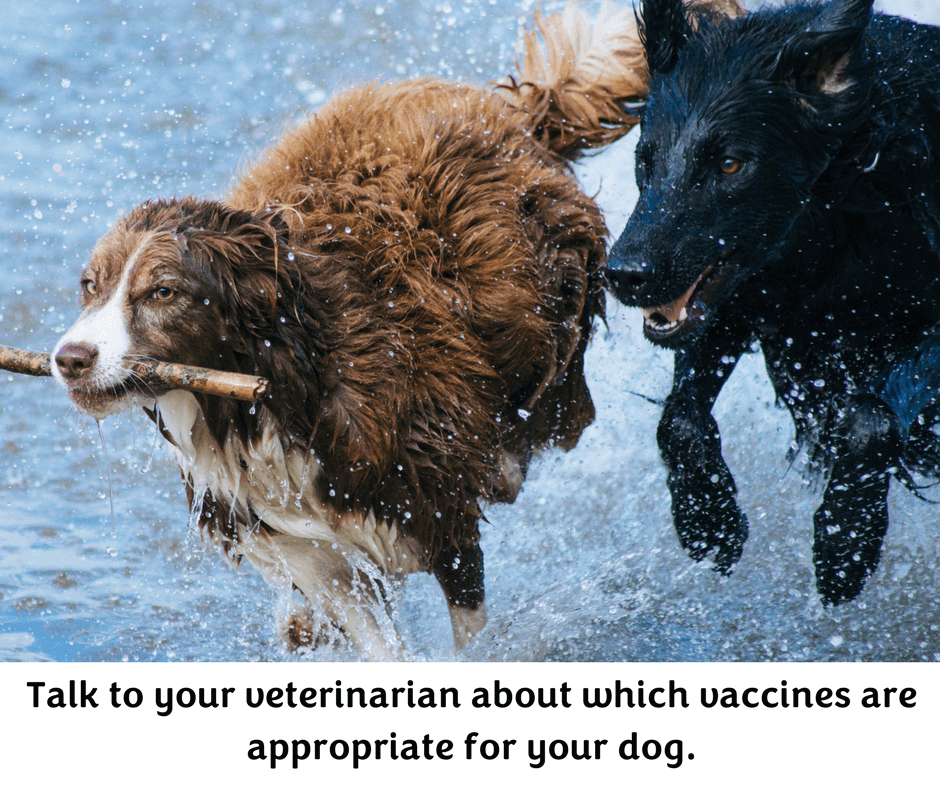Canine influenza is in the news. The H3N2 variant of the canine influenza virus is the one we are hearing about most often, now. It is originated as an avian influenza virus in Asia which had mutated and become infective to dogs in 2007. The first documented case in North America was in 2015. Since then it has spread to 31 states in the US. Outbreaks of canine influenza occur in situations where dogs are housed together (shelters) or spend time in close contact (dog shows, day care). All dogs are susceptible to infection with the H3N2 influenza virus as it is an illness to which our dogs have not previously been exposed. Even dogs who were vaccinated against the H3N8 influenza virus are not protected against the new H3N2 virus variant.
The influenza virus is spread among dogs when respiratory secretions are aerosolized by barking, coughing, sneezing, or through nose-to-nose contact. People can move the virus from dog to dog because the virus can live on hands for up to 12 hours and on clothing and food bowls for 24 hours. The virus can also persist in the environment for up to 2 days. The good news is that the virus is readily killed by commonly used disinfectants.
Once a dog is infected they may be contagious but show no symptoms for up to five days, but dogs may remain contagious for up to 24 days after infection. In as many as 20% of dogs no symptoms are noted despite being infected! Coughing, sneezing, nasal discharge and lethargy are the most commonly observed signs. Most dogs have mild infections and respond well to supportive care- rest, hydration, nutrition, and antibiotic administration if secondary bacterial infection occurs. A small number of dogs do develop pneumonia and may need hospitalization for more intensive care.
Vaccination against the H3N2 influenza virus consists of 2 vaccinations given 2 to 4 weeks  apart and then boosted annually. Dogs who are boarding, going to day care or dog shows should begin the vaccination series at least 4 weeks prior to entry into those intense contact situations. Puppies may begin the vaccination series at 7 weeks of age followed by a booster during their routine puppy wellness visits.
apart and then boosted annually. Dogs who are boarding, going to day care or dog shows should begin the vaccination series at least 4 weeks prior to entry into those intense contact situations. Puppies may begin the vaccination series at 7 weeks of age followed by a booster during their routine puppy wellness visits.
 Seattle Veterinary Associates hospitals now carry the bivalent canine influenza vaccine which covers both the H3N8 and more recent H3N2 strains of the canine flu. Our doctors are prepared to help you decide whether this vaccination is appropriate for your pet. Please ask us about the influenza vaccine and how it fits into the individual vaccine program designed to keep your best friend happy and healthy.
Seattle Veterinary Associates hospitals now carry the bivalent canine influenza vaccine which covers both the H3N8 and more recent H3N2 strains of the canine flu. Our doctors are prepared to help you decide whether this vaccination is appropriate for your pet. Please ask us about the influenza vaccine and how it fits into the individual vaccine program designed to keep your best friend happy and healthy.
Dr. Anne Whereat
Northwest Veterinary Hospital

